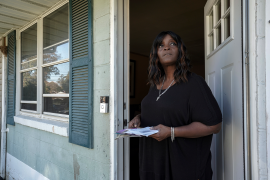Updated since original posting on July 15, 2019.
The pace of activity on surprise medical bills has quickened. We’ve heard a steady stream of stories of consumers facing unexpected bills from out-of-network providers. Congress has held bipartisan hearings and started marking up legislation.
In January, we described state actions to protect consumers from surprise medical bills. As described then and in our earlier report, many states protect patients when they are treated by an out-of-network provider, either in an emergency or when they elect care from a network provider in a network facility but are treated by an out-of-network provider. However, nearly half of states, as well as the District of Columbia, still lack significant consumer protections against surprise bills.
Increased State Activity in 2019
As of the end of 2018, 25 states had enacted consumer protections. Nine of them met our standard for comprehensive protection. We find that a state has comprehensive protection if its law holds the consumer harmless by limiting his or her financial exposure to normal in-network cost sharing and:
- extends protections to both emergency department and in-network hospital settings;
- applies to enrollees of HMOs and PPOs;
- prohibits providers from balance billing; and
- adopts a specific payment standard or process for resolving payment disputes between providers and insurers.
In 2019, Missouri, Nevada, and Washington enacted protections, bringing the total count of states with any protection to 28. The Washington law meets our criteria for comprehensive protection, relying primarily on dispute resolution, while the Missouri and Nevada laws (both using dispute resolution) address only emergency care settings. In addition, Colorado and New Mexico (both using payment standards) and Texas (using dispute resolution) built on previous laws, bringing the number of states providing comprehensive protection to 13.
To meet the comprehensive-protection standard, Texas shifted responsibility for initiating its arbitration process from consumers to providers or insurers and dropped its $500 minimum claim requirement for arbitration. Colorado enhanced its consumer protections by banning balance billing by providers.
We include these 2019 laws in a new interactive map showing the states that meet standards and providing details on types of providers included, rules for payment standards, and how dispute resolution processes work.
View the new interactive map of state balance-billing protections.
State Approaches Continue to Evolve
States have become more creative and comprehensive in their approaches. They are finding ways to combine approaches, enforce protections, and satisfy concerns of different stakeholders.
Combining a Payment Standard with Dispute Resolution
Colorado and Washington both identified ways to combine payment standards with dispute resolution to help with stakeholder concerns. Washington requires insurers to pay a “commercially reasonable amount” but then allows providers to request voluntary negotiation followed by arbitration. Colorado has a specific payment formula based on the carrier’s median in-network rate and uses backup arbitration if the provider considers the payment inadequate.
Protecting Consumers from Overpayments
Colorado, New Mexico, and Washington require providers to refund overpayments to consumers. This measure, already implemented in California, provides extra protection in the common situation where consumers pay a provider bill they are not required to pay. Texas and Washington guarantee that coinsurance is not increased if the provider gets a higher payment through arbitration.
Paying Out-of-Network Providers Promptly
Out-of-network providers in some states complain that although they are guaranteed payment, it may take months before they see it. Washington requires insurers to make an offer of payment within 30 days and limits the time for voluntary negotiations before arbitration is mandated. New Mexico and Texas also set deadlines for prompt payments to out-of-network providers.
Enforcement
States have varied in how they enforce bans on balance billing. By making non-allowed balance billing a deceptive trade practice, Colorado found a way to make a ban more enforceable. Texas gives the attorney general specific authority to bring a civil action if a provider bills a patient more than is allowed. The state also permits licensing authorities to discipline providers.
Comprehensive State Laws Cannot Protect All Consumers
Despite progress in 2019, 22 states and the District of Columbia still lack significant protections for consumers against surprise medical bills. Furthermore, state regulators have told us they cannot easily fill certain gaps without a federal law. States cannot require self-funded plans — typically offered by employers that bear insurance risk for their employees — to be subject to their laws on balance billing. Washington and New Jersey have both created a way for such plans to participate voluntarily, but it is not clear that self-funded plans generally see it in their interest to participate.
In addition, states cannot fully protect patients treated by out-of-state providers — for instance, when a Washington resident is taken to an emergency room in Oregon. As an interim solution, Washington will require insurers to hold policyholders harmless in these situations, but that likely means insurers must pay full charges billed by out-of-state providers. Only federal law can provide a comprehensive solution for these cross-border situations. In addition, states are blocked by federal law from protecting consumers who receive surprise bills for air ambulance services.
While we expect to see more activity from states, the focus is now on Congress’s ability to pass legislation to protect consumers in all states.





